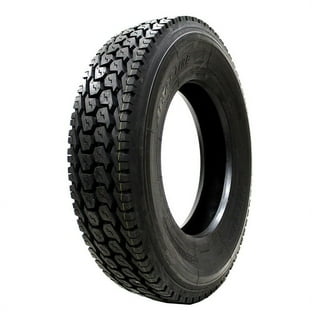Wide Choice of Tires Morris IL: Find the Perfect Fit for Your Vehicle
Wide Choice of Tires Morris IL: Find the Perfect Fit for Your Vehicle
Blog Article
Tire Service: The Effect of Weather
When it comes to ensuring ideal efficiency and safety and security on the roadway, comprehending the influence of weather condition conditions on tire service is essential. In this discussion, we will explore the detailed relationship in between weather condition conditions and tire solution, shedding light on the value of weather-specific tire upkeep techniques and factors to consider.
Warm and Tire Performance
When revealed to heats, tires experience adjustments in performance that can dramatically impact vehicle safety and handling. The warm generated from prolonged driving or hot weather conditions creates the tire rubber to soften, leading to lowered step life and increased wear. As the rubber becomes softer, the tire's hold when traveling decreases, impacting braking ranges and total grip. In severe cases, extreme warm can even cause tire blowouts, posing a serious safety threat to the lorry and its occupants.
Moreover, high temperature levels can accelerate the process of tire aging, creating the rubber to weaken a lot more swiftly. To reduce the impacts of heat on tire efficiency, motorists ought to regularly check their tire pressure, turn tires to guarantee even wear, and inspect for any indications of damage.
Winter Impacts
Winter conditions can have a significant effect on tire efficiency and safety and security. As temperature levels decrease, tire rubber can solidify, resulting in lowered traction on icy or snow-covered roadways. In cold weather, tires may also shed atmospheric pressure a lot more quickly, which can influence managing and fuel efficiency. Additionally, cold temperature levels can trigger tire sidewalls to tense, increasing the danger of damage from fractures or other road hazards.
To mitigate the results of winter on tires, it is vital to routinely inspect tire pressure and inflate them to the supplier's recommended degrees. Utilizing wintertime or all-season tires developed for cool climate conditions can also boost grip and hold on icy or snowy roadways - mopar tire service specials. Correct tire maintenance, including routine assessments for wear and damages, ends up being much more critical during cooler months to guarantee ideal efficiency and safety
Rainy Issues Influence
Throughout wet conditions, tire performance and safety and security can be significantly affected by the wet road surfaces and lowered visibility. The step pattern of tires plays a crucial function in maintaining traction on wet roads. Tires with worn-out treads are extra susceptible to hydroplaning, where a layer of water develops between the tire and the road surface area, bring about loss of grip. To fight this, vehicle drivers need to frequently evaluate their tires for sufficient walk deepness and consider purchasing tires particularly designed for wet problems.

Snow and Tire Security
When driving in snowy conditions, having the right tires can make a considerable distinction in safety and security and efficiency. Winter months tires are made with special rubber compounds and step patterns to provide better grip on snow and ice contrasted to all-season tires.
Along with making use of winter season tires, it is essential to ensure they are properly blown up. Cold weather condition can create tire stress to drop, affecting traction and handling (morris tire and alignment). Consistently examining and keeping the correct tire pressure is important for ideal efficiency in snowy conditions

Weather-Related Tire Maintenance
When faced with numerous weather, proper tire upkeep comes to be an important aspect of car safety and security and performance. Weather-related tire maintenance incorporates a range of methods intended at guaranteeing ideal tire function and longevity in different climate circumstances. One essential facet of weather-related tire maintenance is tire pressure guideline. Rising and fall temperatures can cause tire pressure to vary, influencing grip and fuel performance. Routinely inspecting and readjusting tire stress according to producer referrals is vital for risk-free driving in altering weather. Additionally, tire step depth plays a considerable role in handling different climate components. Tires with sufficient walk depth provide better grasp on wet or icy roads, decreasing the threat of hydroplaning or skidding. When step wear gets to a specific depth is essential for maintaining traction and stability in negative weather, evaluating tire step frequently and replacing tires. By prioritizing weather-related tire maintenance, drivers can boost safety, enhance lorry performance, and extend the lifespan of their tires.
Final Thought
In conclusion, weather condition problems have a substantial effect on tire efficiency and safety and security (tires morris il). From warm impacting tire stress and wear to cool climate lowering grip, it is necessary to think about the weather condition when maintaining and utilizing tires.
In this conversation, we will explore the complex connection in between weather conditions and tire service, losing light on the relevance of weather-specific tire upkeep methods and considerations.

Report this page